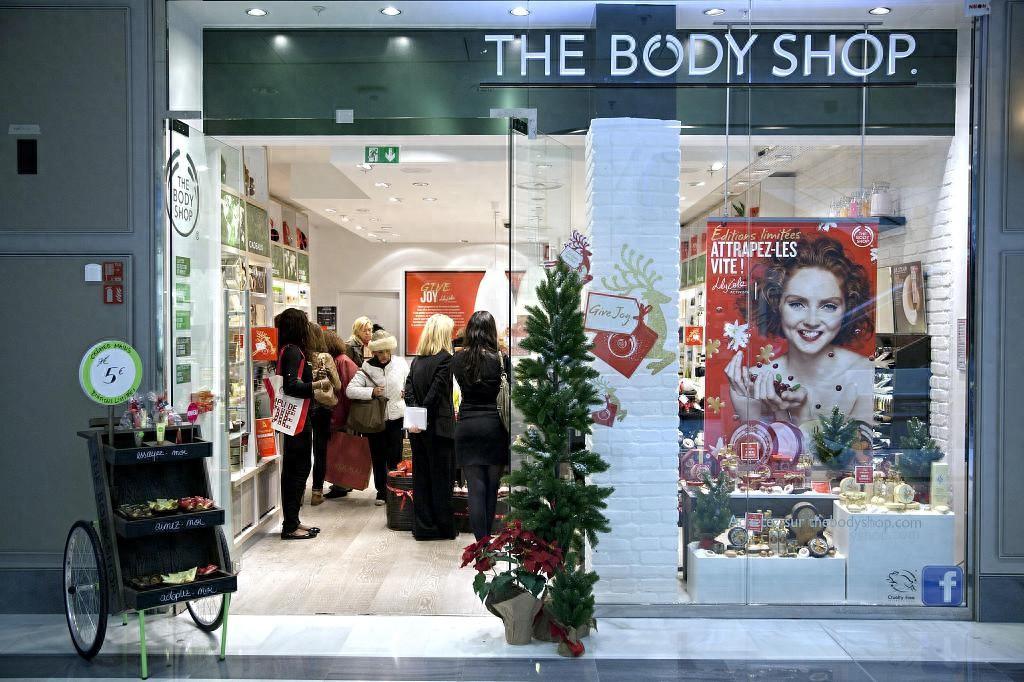The Rise and Fall of The Body Shop: A Cautionary Tale of Innovation and Adaptation
The Body Shop, a once-iconic British beauty brand with a global footprint spanning nearly 50 years, has recently succumbed to financial distress and filed for bankruptcy. This monumental event has sent shockwaves through the beauty industry, prompting both nostalgia and analysis

The Body Shop, a once-iconic British beauty brand with a global footprint spanning nearly 50 years, has recently succumbed to financial distress and filed for bankruptcy. This monumental event has sent shockwaves through the beauty industry, prompting both nostalgia and analysis.



Rise to Prominence: The Pioneer of Ethical Beauty
Founded in 1976 in Brighton, England, The Body Shop quickly gained recognition for its pioneering stance on ethical and sustainable beauty. Its commitment to "cruelty-free" products, sourced from ingredients that respected the environment, resonated with consumers.
The brand's dedication to activism extended beyond its products, with The Body Shop actively supporting campaigns against animal testing in the cosmetics industry. This alignment with the growing consumer demand for ethical consumption contributed to its exponential growth.
By the 1980s, The Body Shop had established itself as a formidable player in the global skincare and cosmetics market. Its products, such as the Ginger Shampoo, Tea Tree Oil Essence, and British Rose Body Wash, became staples in many households. The brand's prominence was further cemented by a loyal following of celebrities, including the late Princess Diana.
Expansion and Acquisition: The Lure of Corporate Ownership
In 2006, The Body Shop was acquired by the multinational cosmetics giant L'Oral for a staggering 940 million. This acquisition sparked mixed reactions, with some fans expressing concerns that L'Oral's commercial focus would undermine The Body Shop's ethical values.
Despite L'Oral's assurances, the brand's distinctive identity seemed to falter under the new ownership. Jean-Paul Agon, the then CEO of L'Oral, acknowledged the challenges in integrating the two entities, highlighting the difficulty of reconciling different corporate cultures.
Dwindling Sales and Strategic Errors: The Decline of a Legacy
In 2017, The Body Shop was again sold, this time to Natura & Co, Brazil's largest beauty manufacturer, for 1 billion. Despite attempts to reinvigorate the brand through fresh marketing initiatives and product launches, sales continued to dwindle.
The Body Shop's inability to adapt to changing consumer preferences, coupled with its reliance on traditional retail channels, contributed to its decline. As competitors introduced more innovative and ethically aligned products, The Body Shop struggled to stay relevant.
Bankruptcy and the Search for a Savior
In 2023, after years of financial struggles, The Body Shop filed for bankruptcy. The company announced the closure of 50 stores in the United States and 33 stores in Canada, while its French operations were also impacted.
The bankruptcy proceedings have raised concerns about the fate of the brand's global operations. However, The Body Shop has stated that it is seeking buyers for all or part of its business, indicating a potential lifeline for this once-beloved brand.
Lessons from The Body Shop's Fall
The demise of The Body Shop serves as a cautionary tale for businesses of all sizes. It highlights the importance of staying adaptable, embracing innovation, and responding swiftly to evolving consumer demands.
The brand's initial success stemmed from its pioneering stance on ethical beauty, but this competitive advantage diminished over time as other brands embraced similar principles. The Body Shop's failure to anticipate market trends and expand into new territories hindered its growth potential.
Furthermore, its reliance on traditional retail channels proved unsustainable in the face of increasing online competition. The brand's late adoption of digital channels left it vulnerable to disruptive business models that catered to the evolving shopping habits of consumers.
The bankruptcy of The Body Shop marks a somber chapter in the history of the beauty industry. It underscores the precarious nature of success and the importance of continuous reinvention. Businesses that fail to adapt to the ever-changing landscape of consumer preferences and technological advancements risk losing their relevance and ultimately their viability.
As The Body Shop seeks a path forward through potential acquisition or restructuring, it is a testament to the resilience of brands that resonate with consumers. However, it remains to be seen whether this iconic beauty brand can regain its former glory or if its legacy will become a footnote in the ever-evolving story of the beauty industry.
Disclaimer: The content of this article is sourced from the internet. The copyright of the text, images, and other materials belongs to the original author. The platform reprints the materials for the purpose of conveying more information. The content of the article is for reference and learning only, and should not be used for commercial purposes. If it infringes on your legitimate rights and interests, please contact us promptly and we will handle it as soon as possible! We respect copyright and are committed to protecting it. Thank you for sharing.(Email:[email protected])















